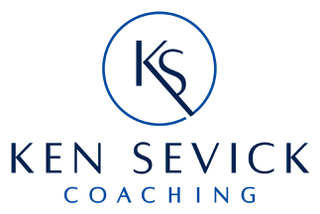In today’s digital age, marketing is the lifeblood of any small business. Whether you’re a local coffee shop, an e-commerce store, or a service provider, your ability to reach and engage with your target audience can make or break your success. When it comes to marketing, small businesses often face a critical decision: should they handle it in-house or outsource it to a specialized agency or freelancer? In this blog post, we’ll explore the pros and cons of both approaches to help small businesses make an informed decision.
In-House Marketing
Pros of In-House Marketing:
- Full Control: When you have an in-house marketing team, you have complete control over every aspect of your marketing campaigns. You can easily change strategies, tactics, and messaging as needed without waiting for external parties.
- Deep Industry Knowledge: Your in-house team can develop a deep understanding of your industry, products, and customers, which can lead to more effective marketing campaigns that resonate with your target audience.
- Immediate Availability: In-house marketers are readily available to collaborate with other departments, making it easier to align marketing efforts with the overall business strategy.
Cons of In-House Marketing:
- Cost: Employing a full-time marketing team can be expensive when you factor in salaries, benefits, training, and equipment costs. This can be especially challenging for small businesses with limited budgets.
- Limited Expertise: In-house teams may lack the specialized skills needed for certain marketing tasks, such as SEO, graphic design, or social media advertising.
- Resource Constraints: Small businesses may struggle to scale their in-house team as their marketing needs grow, which can limit their ability to take advantage of new opportunities.
Outsourced Marketing
Pros of Outsourced Marketing:
- Cost-Effective: Outsourcing marketing can be more cost-effective for small businesses, as they only pay for the services they need when they need them, without the overhead of full-time employees.
- Specialized Expertise: Marketing agencies and freelancers often have specialized expertise in various aspects of marketing, ensuring that you have access to the right skills for each task.
- Scalability: Outsourced marketing can easily scale up or down to meet your changing needs and adapt to market trends.
Cons of Outsourced Marketing:
- Less Control: You may have less control over the day-to-day operations of your marketing efforts when working with external partners.
- Communication Challenges: Effective communication with an external marketing team can sometimes be a challenge, especially if there are time zone differences or language barriers.
- Quality Variability: The quality of work from external partners can vary, so it’s essential to choose your marketing agency or freelancer carefully.
Which Option is Right for Your Small Business?
The decision between in-house and outsourced marketing should be based on your specific business goals, resources, and circumstances. Here are some key considerations to help you make the right choice:
- Budget: If you have limited financial resources, outsourcing may be the more cost-effective option. However, if you have the budget and can afford to invest in an in-house team, it can provide more control and alignment with your business.
- Expertise: Assess your team’s current marketing expertise. If you lack certain skills, outsourcing can fill those gaps quickly. On the other hand, if you already have skilled marketers in-house, consider how well they can handle your current and future marketing needs.
- Flexibility: Think about the level of flexibility you need. If your marketing needs fluctuate throughout the year, outsourcing can provide the scalability you require. In contrast, an in-house team may be more suitable for consistent, ongoing marketing efforts.
- Time: Consider how quickly you need to launch and execute marketing campaigns. Outsourcing can often expedite the process, as agencies and freelancers are typically well-prepared to start work immediately.
- Long-Term Strategy: Assess your long-term marketing strategy. If marketing is a core component of your business’s growth, building an in-house team may be a better long-term investment. If marketing is more of a support function, outsourcing may suffice.
In conclusion, the decision between in-house and outsourced marketing is not one-size-fits-all. Small businesses should carefully evaluate their unique circumstances, budget constraints, and goals to determine which approach aligns best with their needs. It’s also worth considering hybrid solutions, where you combine in-house and outsourced marketing to get the best of both worlds. Regardless of your choice, effective marketing is essential for small businesses looking to thrive in today’s competitive landscape.

